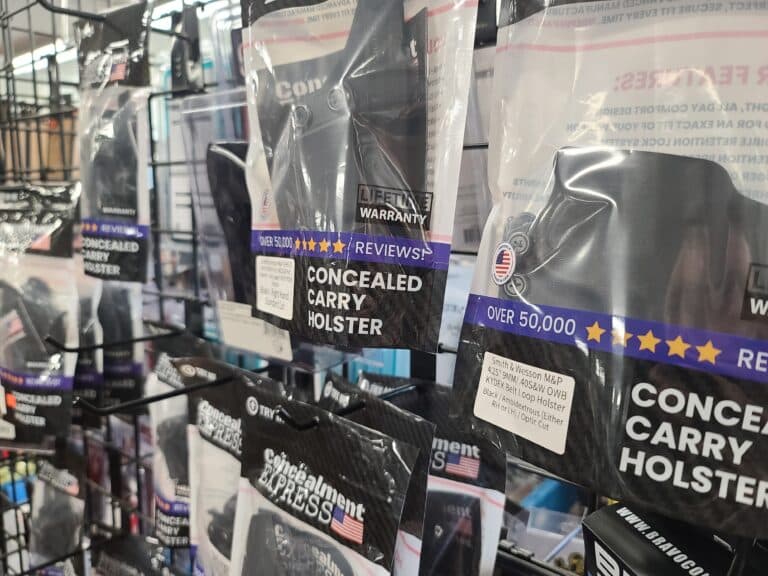Lawmakers in two long-time shall-issue states introduced expansive “sensitive place” restrictions for licensed gun carriers earlier this year. However, their eyes turned out to be bigger than their states’ politics could stomach.
Washington Governor Jay Inslee (D.) signed Senate Bill 5444 into law on Tuesday alongside a package of new gun-control measures. Beginning this June, it will become a misdemeanor offense to “knowingly possess” a firearm in public libraries, zoos, aquariums, and transit facilities. In a twist, however, the new law expressly exempts those with valid concealed carry licenses from this new prohibition. As such, it essentially amounts to an open carry ban in a handful of new locations.
That’s a significant retreat from what lawmakers initially envisioned for the bill. As originally introduced, the measure would have applied to all gun possession, including licensed concealed carry. It also would have applied to any park or recreational facility where children are likely to be present and all state or local public buildings, in addition to the “sensitive places” that did make it into law.
Meanwhile, lawmakers in Colorado watered down their initial proposal even further to advance it.
As initially introduced, Senate Bill 24-131 would have banned licensed gun carry in all parks, playgrounds, rec centers, public demonstrations, polling places, medical facilities, banks, places where alcohol and marijuana are sold for consumption, places of worship unless given express permission, stadiums, amusement parks, aquariums, museums, zoos, government buildings, correctional facilities, libraries, homeless shelters, daycares, and college campuses.
But when push came to shove, and the California-style measure faced its first vote in a narrowly Democratic-controlled committee, the bill’s sponsors opted to pare it down to just the handful of places mentioned by the Supreme Court in the dicta of its Bruen and Heller opinions to get a crucial moderate-leaning Democrat on board. On Wednesday, the bill cleared the Colorado Senate Judiciary Committee—its toughest test on the path to becoming law. Now, it only bans gun carry at polling places, schools and colleges, and government buildings.
The amendment also included a change to the bill’s title, which now stipulates that the gun ban is limited to “sensitive spaces recognized by the United States Supreme Court as places at which longstanding laws prohibited carrying firearms.”
As a result, the first shall-issue states to consider emulating the Bruen-response bills of the half-dozen or so states that had their gun-carry regimes upended by the Supreme Court have significantly backtracked. It will leave New York, New Jersey, Maryland, Hawaii, and California as the only states with such expansive public carry bans on the books.
That’s a setback for gun-control advocates, who had tried to build on the momentum of expanded sensitive place restrictions in the former may-issue states. It also speaks to the tricky politics they will continue to confront in targeting concealed carriers, even in progressive-trending states.
The politics of cracking down on gun carry in a state like New Jersey, where until 2022, state policy essentially banned concealed carry through restrictive may-issue permitting, is a relatively simple matter of continuity in a state where gun-rights advocates hold little sway. Switching to a regime that essentially bans concealed carry through expansive “gun-free” zones is a small practical change. Either mechanism maintains a status quo where practically no one can legally carry a concealed firearm.
Attempting to replicate that system in states with long track records of issuing permits and allowing them to be utilized more broadly is another story. In other words, sizeable Democratic majorities in control of state government may be necessary, but they aren’t sufficient for making the elimination of concealed carry palatable.
None of this is to say that blue states Washington and Colorado will not try again. It’s certainly possible that state lawmakers in favor of more restrictive carry policies will use this year’s modest progress to soften the ground for future restrictions in a piecemeal approach.
But, thus far, the early experiment of progressive-leaning shall-issue states copying the carry policies of their formerly may-issue counterparts has not panned out the way gun-control activists wanted.






